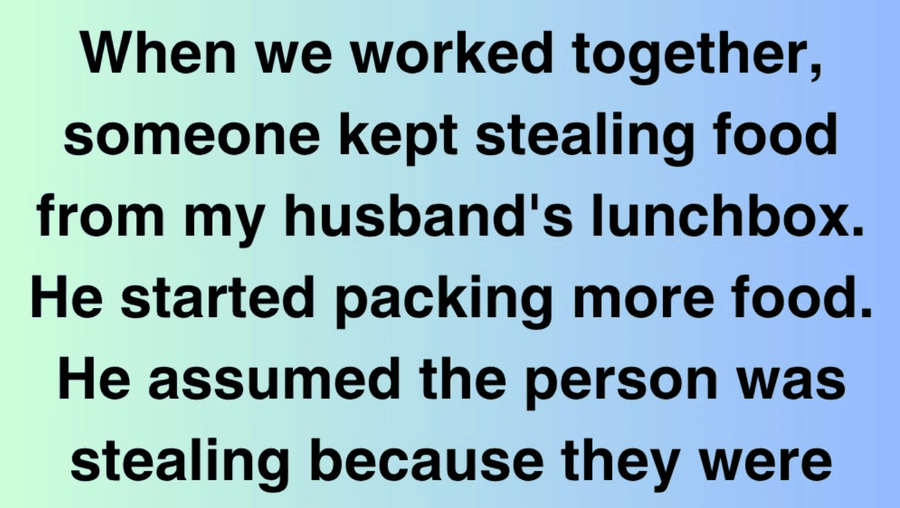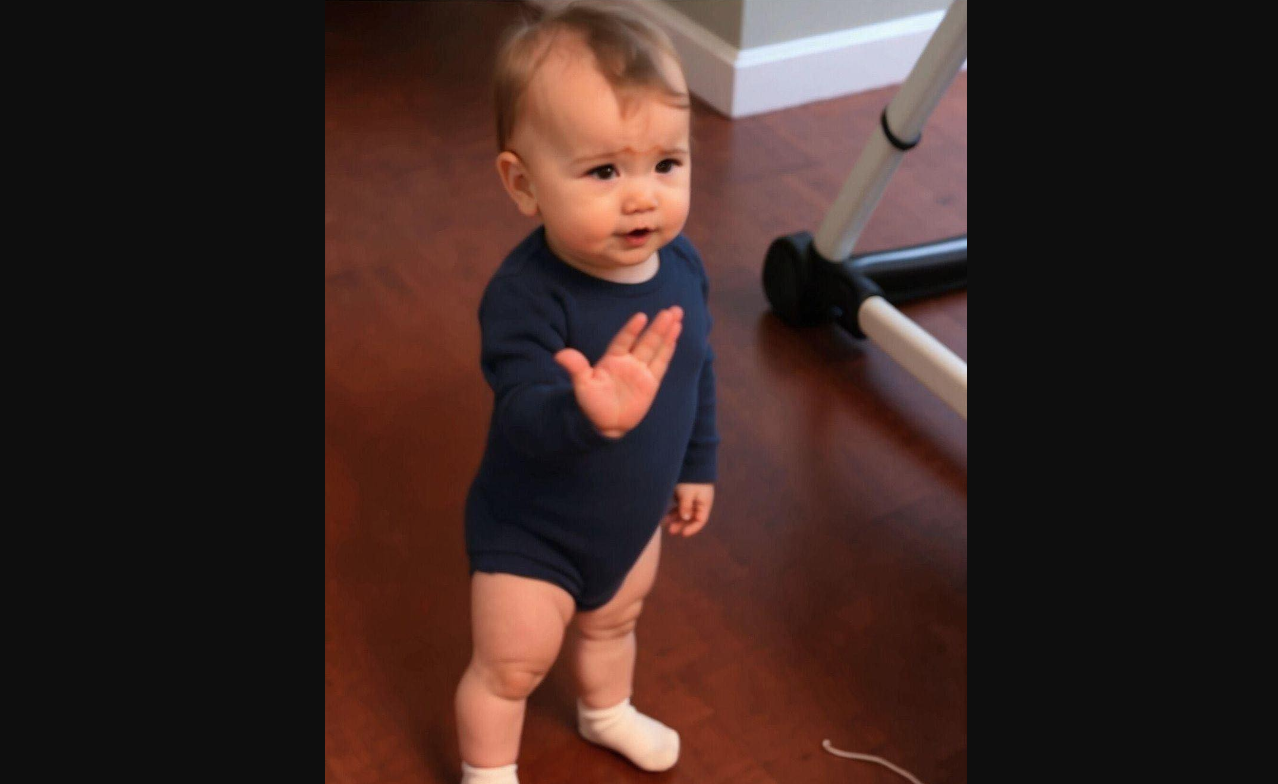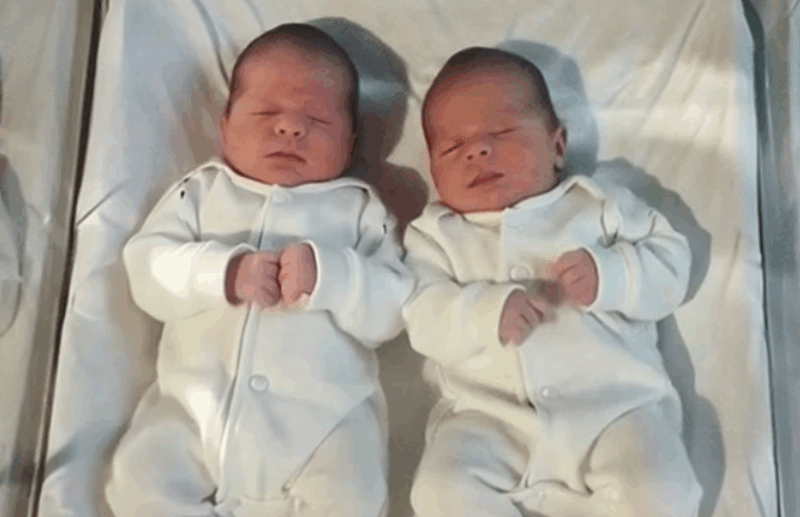In the early months of my role at the compact logistics firm where my husband, Milan, had been a dedicated employee for over half a decade, a peculiar issue arose. The workplace was tight-knit, with everyone familiar with each other’s quirks, yet subtle hierarchies lingered beneath the surface. Milan, ever the dependable operations guy, was the go-to person for assistance, always moving, always approachable. I, on the other hand, handled administrative tasks two floors above, keeping our marriage low-key at work to maintain professionalism.
By mid-September, Milan returned home one evening, his lunchbox in hand, wearing a faint grin. “Something odd happened,” he remarked. “I’m fairly certain one of my sandwiches disappeared today.” He chuckled, brushing it off as if he might have eaten it absentmindedly. But the following week, he mentioned it again. Then again. Sometimes it was an apple, other times a portion of his pasta—always taken with care, never the entire meal.
Milan, ever the optimist, saw the good in everyone. By October, rather than growing frustrated, he began packing additional food. “If someone’s in need,” he told me warmly, “I’d rather they have something to eat than go without.” He added granola bars and extra fruit, a quiet gesture of compassion that reminded me why I fell in love with him.
Yet, curiosity tugged at me. The breakroom fridge, where lunches were stored, was visible from my floor if I positioned myself near the stairwell window. One Tuesday, while delivering paperwork downstairs, I lingered, hoping to catch a glimpse of the culprit—perhaps a new hire grabbing the wrong lunch by mistake.
What I witnessed stopped me cold. It wasn’t a struggling intern or a rushed delivery driver. It was Piera.
Piera, the department coordinator who had worked alongside Milan for years. Piera, who sat beside him in meetings, laughed at his quips, and gifted him homemade cookies last Christmas “for no reason.” She didn’t simply take something and leave. She opened his lunchbox with precision, unwrapped his sandwich, took a single bite, and rewrapped it. As if it belonged to her. As if it always had.
I tried to rationalize it—maybe she forgot her lunch. But two days later, she did it again. And again. Sometimes it was a single cookie, other times a portion of pasta, always with a calm, deliberate air, as if this were routine.
I told myself to stay out of it. But her actions, almost proprietary, unsettled me. It wasn’t about hunger—it was about ownership. I recalled how she’d once placed her hand on Milan’s shoulder while leaning over his desk, her polished nails grazing his shirt. He hadn’t noticed. But I had.
One Friday, I walked into the breakroom as she held one of Milan’s boiled eggs. She froze, then flashed a tight smile. “Didn’t expect anyone here,” she said, slipping the egg back into the lunchbox as if doing me a courtesy. I stayed silent. We locked eyes briefly before she glided past me.
That evening, I nearly told Milan. But I pictured the aftermath. He trusted Piera. They worked closely, and the truth would disrupt their rapport—and perhaps his belief in people’s goodness. Knowing him, he’d confront her directly, and she’d either deny it or spin a story, turning it into office gossip. I didn’t want him caught in that mess.
So I held my tongue.
Instead, I began packing extra items myself—small things like an extra cookie or sandwich, hoping she’d take those instead of his main meal. It worked occasionally, though she sometimes still helped herself to his favorites.
In late November, Milan came home mentioning that Piera’s mother had taken ill. She was missing shifts to care for her, and colleagues were stepping up to support her. He was genuinely concerned. I bit back my words.
But truth has a way of surfacing without interference.
In early December, the company held a meeting about missing office supplies—printer ink, notepads, even petty cash. HR was investigating. I noticed Piera fidget in her seat.
Two weeks later, she was gone. No warning, just a vague email stating she’d left to “care for family.” A trusted coworker later confided that security footage had caught her taking supplies—not for her mother, but to sell online. The lunch theft seemed trivial in comparison.
When I shared the news with Milan, he was floored. “I never would’ve guessed,” he said. “She always seemed so sincere.” I nodded, keeping the lunchbox secret to myself.
Months later, over dinner, Milan reflected on the mysterious lunch disappearances. “You know,” he said with a soft smile, “I bet whoever it was found a better job or something.”
“Maybe,” I replied, mirroring his smile. And I left it at that.
Some truths don’t need to be spoken. Preserving Milan’s belief in kindness felt more important than proving I’d been right. He still sees the best in people, and I couldn’t bear to dim that light.
Life has a way of revealing what’s hidden in time. And when it does, those who’ve earned their reckoning will face it.
The takeaway? You can’t control what others do, but you can choose your response. You can choose compassion, even when it’s not reciprocated. You can choose to shield someone’s spirit when exposing the truth would break it.
And that quiet choice—to protect those you love—is the deepest form of loyalty.
If you’ve ever held a secret to spare someone’s heart, share this story with someone who’d get it. And if you believe kindness matters, even when it’s tough, give this a like to spread the word.




